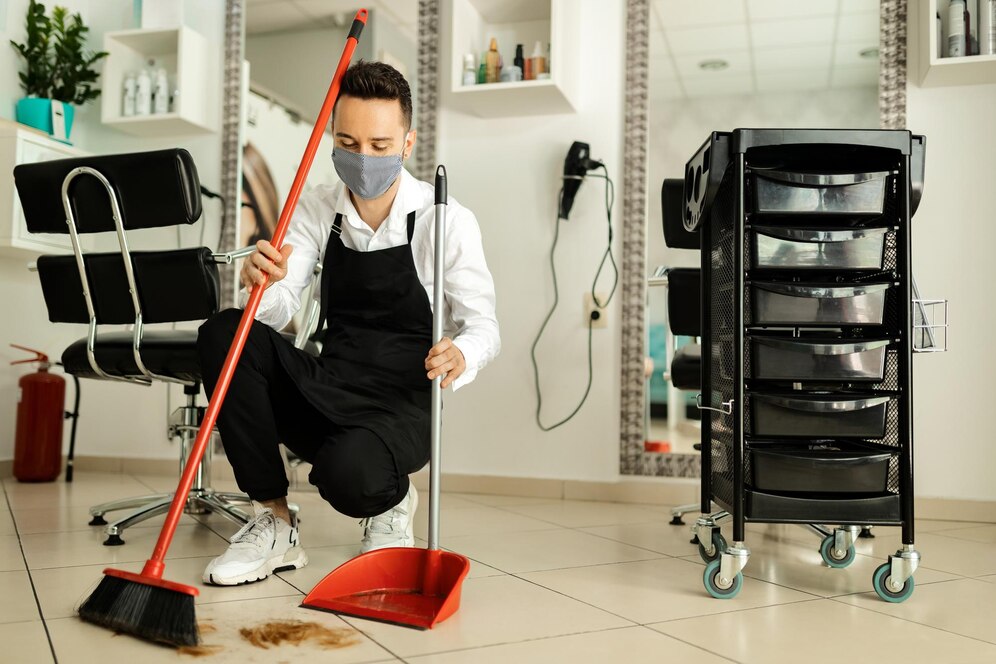I’d been working in corporate marketing for nearly fifteen years when burnout finally caught up with me. The endless commute, office politics, and the feeling that I was building someone else’s dream rather than my own led me to a career crossroads. After months of research and soul-searching, I took the plunge into business ownership – specifically, a home cleaning franchise. Three years later, I can honestly say it’s been one of the most rewarding decisions of my professional life, both financially and personally.
If you’re considering a similar path, let me share some insights into why the residential cleaning franchise model is particularly compelling in the current UK landscape.
The Undeniable Growth of Home Cleaning Demand
The days when professional home cleaning was considered a luxury for the wealthy are long gone. Today, it’s increasingly viewed as an essential service for many UK households, and the numbers back this up. According to recent market research, the UK domestic cleaning sector has seen annual growth of approximately 6-8% over the past five years, outpacing many other service industries.
Several factors are driving this trend. Most notably, the rise of dual-income households means more families have the financial means for cleaning services but lack the time to handle these tasks themselves. In my franchise territory nearly 50% of our clients are professional couples with demanding careers who value their limited free time too much to spend it cleaning.
The pandemic has also permanently shifted attitudes about home cleanliness. While there was initially a dip when lockdowns first hit, demand rebounded dramatically as people developed heightened awareness about hygiene and sanitisation. Many clients who previously viewed cleaning as a purely aesthetic concern now understand its health implications, leading to more consistent and frequent service bookings.
Another significant driver is the UK’s ageing population. Many of my most loyal clients are older homeowners who wish to maintain independence in their homes but find certain cleaning tasks physically challenging. This demographic trend shows no signs of reversing and represents a stable, growing client base for residential cleaning businesses.
The Franchise Advantage in Home Cleaning
When I first considered entering the cleaning industry, I seriously contemplated starting an independent operation. The initial investment would have been lower, and the appeal of complete autonomy was strong. However, after considerable research, the franchise route emerged as clearly superior for several compelling reasons.
First and foremost is credibility. When you’re asking people to trust you inside their homes—around their children, pets, and possessions—having an established brand behind you provides immediate legitimacy that an independent start-up simply cannot match. My franchise’s recognisable national advertising presence opened doors that would have taken years to access otherwise.
The training aspect proved invaluable as well. Despite being business-savvy in my previous career, I knew nothing about the specific challenges of running a cleaning operation. My franchisor provided intensive initial training covering everything I needed to know. This compressed learning curve saved me from countless costly mistakes.
Perhaps most significantly, the proven business model eliminated much of the guesswork from my operation. I received detailed operations manuals, pricing guidelines, marketing templates, and customer service protocols that had been refined across hundreds of locations. Rather than developing these systems through expensive trial and error, I implemented processes that were already optimised for success.
Financial Aspects That Make Sense
The financial model of a home cleaning franchise holds particular appeal compared to many other business opportunities. My initial investment was substantially lower than food service or retail franchises that often require six-figure investments. This lower entry barrier made it possible to launch without taking on crippling debt.
The ongoing cost structure is equally attractive. Unlike businesses requiring commercial premises, my operation started from my home office, with minimal overhead. As we’ve grown, I’ve moved to a small commercial unit, but the progressive scaling kept capital requirements manageable throughout our expansion.
The predictable, recurring revenue model creates financial stability that many businesses envy. Approximately 85% of our clients are on weekly or fortnightly cleaning schedules, generating dependable income streams. This predictability makes cash flow management and business planning remarkably straightforward compared to transaction-based businesses.
Our average client retention is high. This longevity dramatically reduces customer acquisition costs over time, improving profitability as the business matures. When you factor in that satisfied clients frequently refer friends and colleagues—nearly 20% of our new business comes from referrals—the economic advantages compound.
Operational Flexibility Worth Considering
One aspect I particularly value is the operational flexibility this business model offers. When I started, I worked alongside my first cleaners, handling some cleaning jobs personally while managing the growing business. As we expanded, I gradually transitioned to a purely strategic role, focusing on business development and team leadership.
This flexibility extends to business hours as well. Unlike retail or hospitality franchises that demand weekend and evening hours, home cleaning occurs primarily during standard business hours. This schedule alignment has allowed me to maintain a work-life balance that was impossible in my corporate career, including predictable evenings and weekends with my family.
Scaling the business has proven remarkably straightforward. We started with just two cleaners. Today, we partner with over forty. The business model accommodates this growth organically, without requiring proportional increases in overhead or management complexity.
Challenges, Honestly Addressed
Despite these advantages, I’d be doing you a disservice not to acknowledge the challenges inherent in this business. Finding and retaining cleaners can be difficult in an industry not traditionally known for career development. I’ve addressed this by offering above-market hourly rates, which has significantly reduced turnover compared to industry averages.
The residential cleaning market does face competition from independent operators. However, our professional approach—including comprehensive insurance, reference-checked cleaners, and quality service standards—allows us to compete effectively in the mid-to-premium market segments where clients value reliability and peace of mind.
A Day in the Life
A typical day for me now involves finding new cleaners, handling any client communications, and focusing on marketing and growth initiatives. I generally work standard business hours, with administrative flexibility that allows me to attend my children’s school events or handle personal appointments without business disruption.
The seasonality is manageable as well. While we see slight dips around certain holiday periods, the essential nature of regular cleaning creates year-round demand that prevents the dramatic seasonal fluctuations many businesses experience.
The Personal Satisfaction Factor
Beyond the business case, I’ve found unexpected satisfaction in providing a service that genuinely improves people’s lives. Our clients regularly express how our work reduces their household stress, gives them precious time back, and creates a more harmonious home environment. There’s something deeply rewarding about building a successful business that makes such a tangible, positive difference.
I’ve also found meaning in creating quality partnerships with cleaners, many of whom have gone on to be long-term friends.
Looking Toward the Future
The residential cleaning sector in the UK shows every indication of continued growth. Demographic trends—including increased female workforce participation, ageing homeowners, and greater awareness of the health aspects of cleanliness—all point toward sustained demand.
Technology is enhancing the business model as well. Our franchise has introduced an app-based management system that reduces administrative overhead. Enhanced cleaning technologies and eco-friendly product innovations keep the service offering current with consumer preferences and environmental considerations.
Is This Right for You?
After three years as a cleaning franchise owner, I believe this business model suits a particular type of entrepreneur. It’s ideal for someone who values systems and proven methods over reinventing the wheel. You’ll need strong people skills, as your cleaner partnerships are truly your most important asset. A commitment to service excellence is essential, as is comfort with a business model built on many small, recurring transactions rather than large one-off sales.
The financial requirements are modest by franchise standards, but success still demands adequate capitalisation for the initial investment and operating costs until profitability. Most franchisors recommend having at least six months of operating expenses in reserve beyond the startup costs.
If these elements align with your situation and ambitions, a residential cleaning franchise offers a compelling business opportunity in today’s UK market—one with a clear path to profitability, genuine lifestyle benefits, and significant long-term potential.
For me, trading my corporate badge for a cleaning franchise has brought not just financial success but also the autonomy, balance, and purpose I sought. In a business landscape filled with uncertainty, that’s a combination worth serious consideration.





























